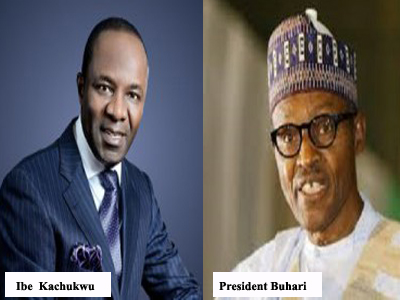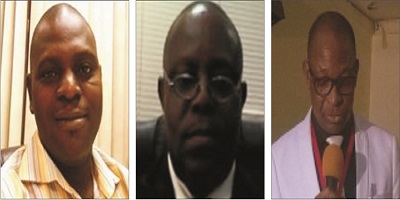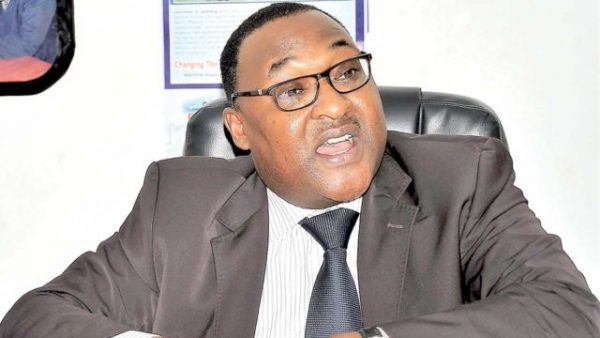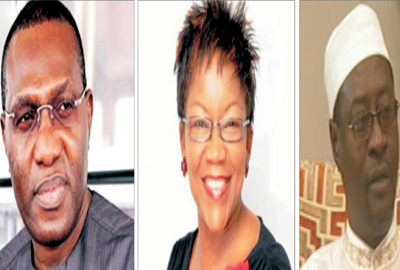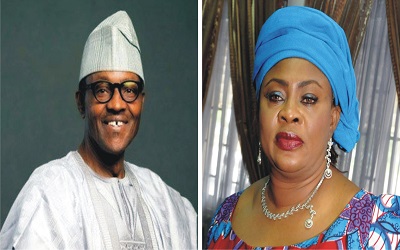National Transport Policy: Sambo’s Quest To End A Bleak Future
By Frank Odinukaeze
When on 29th September at the World Maritime Day( WMD) celebration media parley with the Minister of Transportation, Engr. Mu’azu Jaji Sambo, he revealed that the Federal Government was desirous of ‘resurrecting’ once again the National Transport Policy(NTP),which before now had witnessed numerous failed promises ,as this is not the first time the issue had come up.
Stakeholders took the pronouncement with some measure of reservations. The reason being that previous transport ministers, from Ojo Maduekwe down to Rotimi Amaechi,all had echoed the drafting of a national transport policy, but it had all ended in just talk alone; nothing to show for it. It had been all motion no movement!
And this scenario, explains why Sambo’s decision to dust up the issue once again has elicited reactions.
Amaechi, however, set up a committee chaired by former director-general of Nigerian Maritime Administration and Safety Agency(NIMASA),Mfon Usoro, who actually led a team that drafted a new transport policy. They did submit their report but the white paper is yet to be out. Nevertheless, there were complaints from some quarters that their report did not holistically take cognizance of new transport types and modes as well as the emerging transport mix in the global economy. For instance, the place of Drone in the prevailing realities of today is not captured.
Indeed, after 62 years of nationhood, Nigeria is yet to come up with a sustainable transport policy that would drive one of the world’s largest revenue earners.
Transport Policy and Transport Planning are needed to fully harness the potentials in the sector.
While national transport policy tries to make decisions concerning the allocation of transport resources, transport planning on the other hand ensures their effective implementation.
Transport policy deals with developing a set of constructs and propositions that are established to achieve specific objectives relating to social, economic, and environmental conditions, and the functioning and performance of the transport system.
The goal of transport policy is to make effective decisions concerning the allocation of transport resources, including the management and regulation of existing transportation activities. Thus, transport policy can be concomitantly a public and private endeavor.
Still, governments are often the most involved in the policy process since they either own or manage many components of the transport system and have levels of jurisdiction on all existing transportation modes. Governments also often perceive that it is their role to manage transport systems due to the essential public service they provide in addition to impose a regulatory framework.
Yet, many transport systems, such as maritime and air transportation, are privately owned with firms servicing international markets that are able to set their own policy. However, there are substantial geographical variations in ownership.
For instance, the United States have a history of private involvement while Europe, China, India, and Japan have relied more on public ownership and operations. Nigeria however,is a mixture of both private and public ownership.
The standard rule according to Dr.Jean Paul Rodrigue,of the Department of Geography Hofstra university, New York ,United States of America, in his recent publication titled ” Geography of Transport Systems” 5th edition , “Is that the public sector usually provides transport infrastructure and the regulatory framework while the private sector assumes the provision and operations of many modes and terminals”.
Public policy provides the means by which governments attempt to reconcile social, political, economic, and environmental goals and aspirations with reality. These goals and expectations change as the society evolves, and thus a feature of policy is its changing form and character. Policy tends to be dynamic and evolutionary as noted by Dr.Eugene Nweke.
“A transport policy shows where we are going, this is what we want at a particular time, may be 2010 till 2030, because transport is dynamic. There are changes that would come in between and you must also fine-tune. For example, today, we are looking at ships that are powered by solar systems, vehicles that are powered by electric. The port design also changing. So if your transport plan is not proactive , or not looking into the future then it’s wrong,”he said.
Dr Nweke argued that a new transport policy has to open up a new horizon, a new market. “It’s an aggressive move that should be pursued, but how many people have the political will to pursue it?. These are issues that show concern. Transport is the key thing that moves any nation, that develops any nation, that yields advancement in terms of revenue and empowerment of the people,” he said, adding that ,”To me we are just a nation just like you say Nigeria is a maritime nation.”
We don’t have national fleet, the existing ones,need assistance to sustain what they are doing. And you withhold the Cabotage Vessel Financing Fund ( CVFF) as a government.”
The former president of National Association of Government Approved Freight Forwarders (NAGAFF) argued that “If we have a proper national transport policy most of the issues in aviation would go on its own, because the people and actors would know that this is what government is putting in place . Without the national transport policy, the minister can come out and concession ports because there is no national policy supporting it.”
“We must have a national transport policy as a nation. This is very important. This idea of down-playing it all the time is unacceptable” he said
Nweke blamed the lawmakers for not taking the issue of national transport policy for the country seriously and wondered whose interest are they representing.
“They have never seen the need, the urgency that a nation like Nigeria must stand on a national transport policy to build a vibrant transport system that have the capacity to attract foreign investments,” he said.
On the issue of Climatic change , Blue Economy and Greener Shipping,Nweke had this to say ;
“You that talk about greener shipping, how many ships do you have? Is there any plan to actually get our shipping greener?”
He said the NTP is a policy that would drive our shipping sector, so that we would start building ships other than creating multiple deep seaports. He said one of those seaports could be used as a ship building base and ship dockyard and this could only be realized through a carefully crafted and holistic NTP.
In his own reaction,the Registrar of the Chartered Institute of Logistics and Transport CILT),Mr. Paul Ndibe argued that NTP is needed for not only economic prosperity of the nation ,but also to give proper direction and perspective of the sector. “If there is no policy, whatever the investment or development initiatives we would be propounding, would be haphazard. They would not be coordinated, they would not be interlinked and it would not be integrated. So having a policy guideline, a direction and an investment plan that would take and speed up development in the required direction is a great necessity,” he said
Ndibe said it is unfortunate that in 2022 we still do not have a NTP. He blamed the moribund nature of the NRC on the absence of a NTP.
“Let us take the rail for example, look at the development in the rail sector, as we speak; we have not yet defined the role of our railways. And the role of our railways can only be defined through our policy. At one point, the government came up with the initiative that all state capitals are to be connected by rail. At another point there was also the rail way coastline that has to pass through all the coastal states including Port Harcourt and Ondo up to Calabar. At the point, we were discussing the coastline rail, there was no Kano-Maradi line. All of a sudden, there was a Kano-Maradi line and then what has happened to the existing narrow gauge line? Nothing has significantly taken place particularly at Port Harcourt- Maiduguri axis.
“Although there have been incremental changes in the Lagos, Kano axis but, of course, Lagos to Ibadan, it is on the standard gauge but beyond Ibadan, it is not on the narrow gauge, Kano Maradi would be on the standard gauge because construction is yet to start. So if you link up Kano and Maradi on the standard gauge and Lagos and Ibadan on the standard gauge. What happens to the Ibadan, there is also the standard gauge line in Abuja and Kaduna, but do you have a standard gauge line between Kaduna and Kano and then Kaduna down Minna. And these things are happening, because of the absence of a National Transport Policy,” he said
Ndibe argued that if there is a national transport policy, a policy that would even guide investment plan on the railway and even on the choice of partnership and priority of lines,it would aid and direct all these losses and investments that are going on in the railway which to some point can be described as haphazard because they are not being coordinated.
Advising that NTP should incorporate all these stated, he noted that NTP should look into the problems in the aviation sector, as Nigeria up till this moment has not had a national carrier.
“With all the developments and attractions, in the aviation sector, we have not actually come up with our own national carrier. States are increasingly developing airports as opposed to even doing roads . There are so many airports particularly at the state government level but how many airlines do we have? Very few of them. How many of our indigenous airlines are operating abroad?” He asked.
He noted that the single African Air Transport market under the African Union, of which Nigeria is a signatory to, nothing has been done to also capture the growing attraction to air travel.
“Looking at the population of Nigeria and the increasing wealth among the middle class, that would be related to air travel. These are the challenges we have. If we have these needs, and there is no policy to harness supply and address these transport supply, of course, it would be missing the point,” he added.
He said a holistic approach is that the transport sector is divided into different sections, aviation, rail, road; both passengers and cargoes.
“We have the maritime, pipeline and of course the new one which is the telecommunications networks. You cannot develop a national transport policy that would not have interconnectedness. We are looking at inter modal transportation system, where one would complement the other,” he stated.
Speaking to MMS Plus, President of Women’s International Shipping and Trading(WISTA) Nigeria,Mrs Eunice Ezeoke debunked fears that Sambo had little time to stay in office as Transport Minister and therefore might not have enough time to put in place a sustainable NTP, ” As far as I am concerned, it is not the time space that is available that is the issue,whether it is feasible or not, but the will and commitment and the perseverance of the players. I remember that when Ojo Maduekwe was the minister of transportation, he vowed that he must bring out the National Transport Policy. Committees were formed, papers were written and read. After that, the whole thing died. You remember that after Ojo Maduekwe, series of ministers came on board. After that, nothing happened. Then, Amaechi came on board , nothing happened. All these people, they had four years, eight years and there was no National Transport Policy. Now, Engr. Sambo came on board and decides to make it his focus. In my opinion, even if he has seven months as a minister and he has the will to bring it to pass, it is achievable”
She agreed with Dr Eugene Nweke and Ndibe that political will is what is needed to achieve a NTP
“What we lack is the will. And they are very good at churning out policies,but the will to practicalize and enforce the policies is never there. Why, because, everybody is pursuing personal interest. This National Transport Policy not coming out, some people even like it. There is no uniformity of purpose in the industry. Once there is a will, Engr. Sambo will have enough time to bring it to pass because, all the ground work has been done, completed and published by the previous administrations. When I mean previous administrations, I mean past ministers of transport.
The WISTA president also aligned her thoughts with those of Nweke and Ndibe that the NTP should be a total package.
“The total package is that ,no area or segment should be left untouched or unaddressed. When we talk of National Transport Policy we are talking of road,sea, waterways , ports, railways, air. All these are transportation means. In my opinion, it should be integrated. There should be an integrated policy. Am not saying that each of them will not have their own segment, but when we are bringing out a policy addressing the transportation industry, it should be integrated, it should be holistic in nature. And each one’s peculiarities should be addressed,” she said.
Ezeoke argued further that the transport policy that will be adopted must address the blue economy, must address maritime security, must address the environmental challenges, amongst others. “When you talk about environmental challenges, you are talking of all sorts of solutions, including gas flaring, drilling, spillages. That is why I said it should be integrated, it includes making our oceans safe for our aquatic animals and foliages because, these are where we get our sustenance from both the oxygen we breath , food, transport, the sea provides all these . And we are blessed with oceans. Nigeria being one of the coastal states in the Gulf of Guinea, we must adopt a policy that will also take care to ensure that there is safety in the sea and in the environment and that there is also safety of the sea in terms of protecting our oceans, protecting the animals, that is the life in the sea and oceans , protecting our environment and knowing that what we eat, most of them come also from the sea,”she added.




